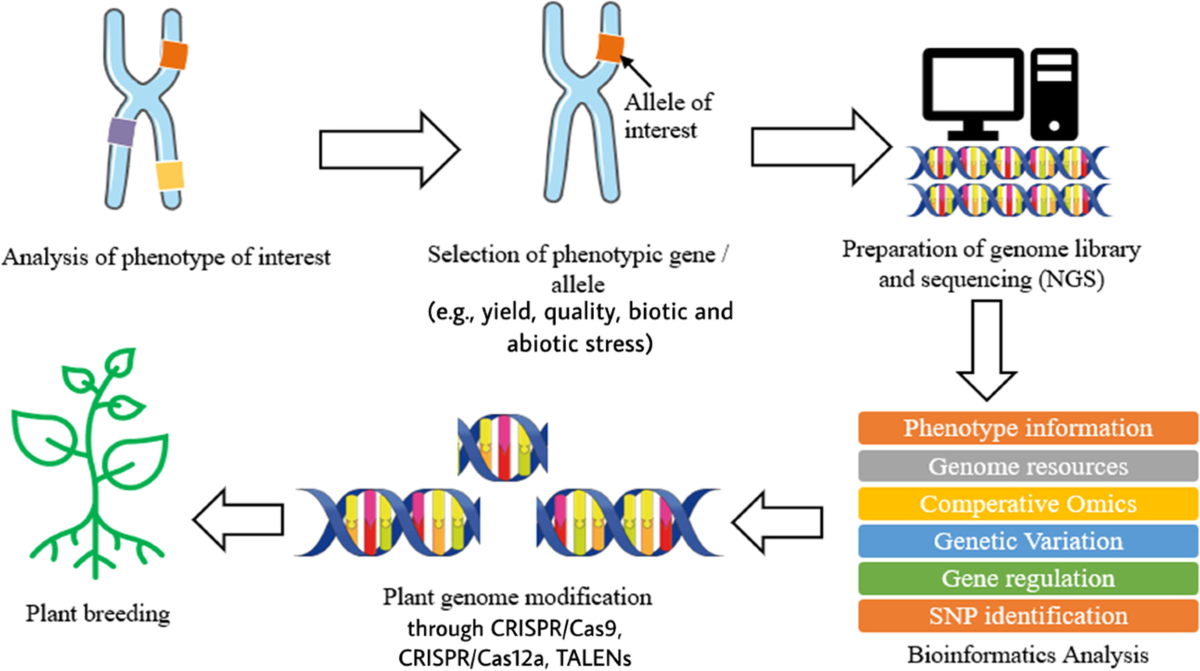Fascination About Bioinformatics Tutor
Fascination About Bioinformatics Tutor
Blog Article
More About Bioinformatics Tutor
Table of ContentsAll about Bioinformatics TutorGetting The Bioinformatics Tutor To WorkSee This Report on Bioinformatics TutorThe Ultimate Guide To Bioinformatics TutorUnknown Facts About Bioinformatics Tutor
First job growth is relatively lengthy, as it entails careful planning of the topic, structuring of deliverables, and consideration of the skills and experience levels of individuals. Nonetheless, when a project has actually been clearly specified and carried out, it has the prospective to be recycled in future sessions with only minor modifications to show updates in the field or accommodate differences in participant histories. This makes project-based learning a efficient and lasting teaching approach in the lengthy run, particularly in swiftly progressing self-controls like bioinformatics.To guarantee connection and reproducibility of discovering, giving shared laboratory note pads-- either digital or physical-- is essential. These notebooks act as joint logs where pupils can tape their progression, code, techniques, and results throughout the program. Not just do they strengthen learning by urging documentation and reflection, yet they also work as post-course recommendation materials that participants can consult in future research study or scholastic tasks.
Coaches play a crucial role in the success of project-based training courses. Mentors likewise act as role designs and inspire pupils to proceed going after careers in computational biology and related fields.
Some Known Factual Statements About Bioinformatics Tutor
An additional trick aspect of the knowing procedure is offering participants the possibility to offer their job to others, specifically to a target market past their prompt task group. Last presentations or mini-conferences permit pupils to express their searchings for, obtain useful feedback, and gain self-confidence in communicating scientific material. This discussion component is commonly a favorite among students, as it validates their efforts and highlights the real-world significance of their work.
Each model of the program was fine-tuned based on participant responses and developing ideal techniques in pedagogy. Bioinformatics Tutor. These adaptations made certain that the core goals-- hands-on understanding, partnership, and applied analytic-- continued to be intact while expanding the depth and breadth of topics covered.
A remarkable visualization that caught individual sentiment was a word cloud produced from responses to the 2014 end-of-course survey. This visual comments reinforced the program's focus on experiential understanding and mentor assistance.
The contributions of individuals such as Rustici, G., Orchard, S., Cowley, A., and Twells, R., in addition to various other participants of the EBI user-training-working team, contributed in refining the training course framework and content. Their insights helped form a inclusive and flexible model that could be adapted to various institutional and regional contexts.
6 Simple Techniques For Bioinformatics Tutor

Jones, Rasmussen, and Moffitt (1997) likewise promoted for interdisciplinary understanding via collaborative project work, noting its capacity to mimic expert settings and prepare trainees for future scholastic or sector duties. In a thorough review, Thomas (2000) assessed numerous researches on PBL and wrapped up that students not only perform well academically however likewise develop a much deeper understanding of the topic and improved synergy skills.
In the context of bioinformatics education, cutting-edge techniques like classroom games and simulation-based training have actually also been employed. For example, Schneider and Jimenez (2013) introduced the use of interactive link games to teach biological data assimilation, allowing trainees to comprehend complicated concepts with experiential understanding. This sort of gamification complements the hands-on understanding emphasized in project-based programs by presenting an aspect of enjoyable and competition, which can even more enhance involvement.
Going back to the course gone over below, the lessons discovered from the execution of project-based learning in a bioinformatics setting have broader implications for various other STEM fields. The approach stresses not simply technological effectiveness, yet likewise communication, partnership, and vital thinking-- skills that are significantly valued in both academia and industry.
Getting My Bioinformatics Tutor To Work
The scalability of the program style additionally makes it a feasible design for other institutions. With ideal modification based on regional requirements, offered sources, and participant profiles, the structure can be reproduced or adapted for use in various other scientific domains. Furthermore, the incorporation of organized mentorship and assessment strategies helps make sure regular high quality and quantifiable understanding outcomes.

In verdict, project-based understanding in bioinformatics offers an effective strategy to teaching complicated, interdisciplinary web content in such a way that is both obtainable and intellectually stimulating. By emphasizing partnership, sensible application, and vital anonymous questions, such campaigns not just boost individual learning yet additionally add to the farming of a brand-new generation of ingenious and experienced scientists.
The Only Guide to Bioinformatics Tutor

Another trick aspect of the discovering process is offering participants the chance to offer their work to others, especially to a target market past their prompt task team.In the more comprehensive educational literary works, project-based understanding (PBL) has been thoroughly researched and verified as an efficient method for check out here advertising deep understanding, vital thinking, and transferable skills. Adderley et al. (1975) highlighted the worth of project techniques in greater education, noting that they advertise active learning and freedom. Schneider and Jimenez (2013) introduced the use of interactive games to instruct organic data integration, enabling trainees to understand complicated principles via experiential understanding.
Report this page